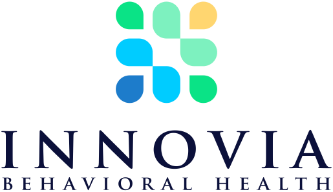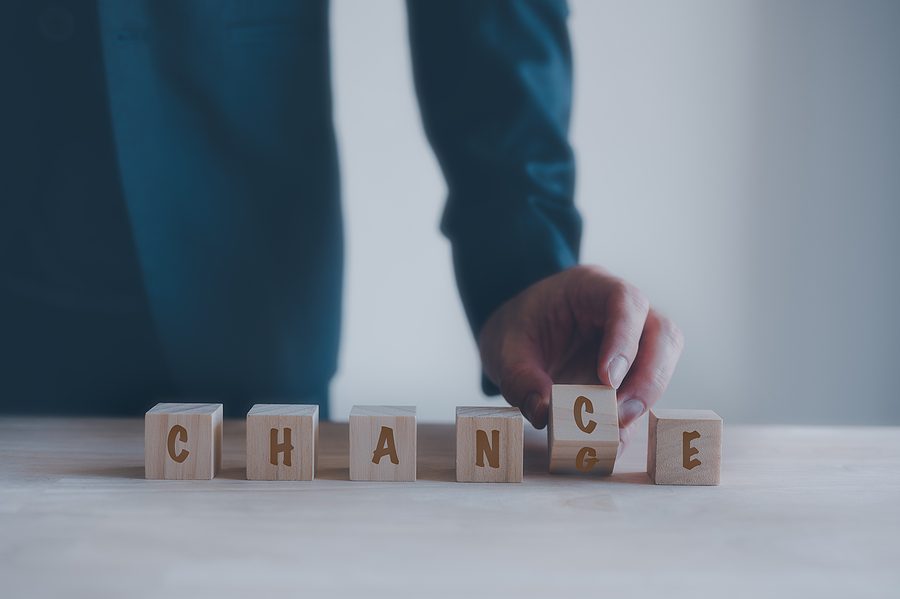(The following comes from Section 4. of the Online Recovery Program that is located in the resource library for Innovia members. The concepts apply whether you’re in recovery from substances or trying to change something else about your life.)
There are many references and quotes available that say that we become what we think, or that we attract what we put our attention on, and we have absolutely seen this apply in the realm of recovery from substance use disorders. The power of thought and how it shapes how we view and act in the world is infinite, and that applies to how we view and think about ourselves as well.
According to the American Psychological Association, “The way we perceive ourselves in relation to the rest of the world influences our behaviors and our beliefs. The dynamics of psychology — cognition, perception, learning, emotion, attitudes and relationships — all play a significant role in how humans see themselves and the many elements in their environment.”
One of the most difficult parts for many people in recovery is for them to be able to let go of the scripts that keep running in their minds and therefore playing out in their daily lives as well. These repetitive thought patterns are often highly damaging, in that they have chosen to accept certain labels or identities that are not true and are not helpful to their recovery, let alone to leading a life of fulfillment.
We are going to look at some of the more common self-sabotaging labels and identities that have kept people stuck in the loop of unsustainable progress.
You Are Not Damaged Goods
Contrary to what you may have told yourself or what someone else may have told you, you are not a bad person. You are not beyond hope. We are all doing the best we can with the information, experiences, circumstances and resources we have at any given time. Sometimes this leads us to do things we are ashamed of, but we have to find ways to shed not just those undesirable behaviors, but also the thoughts or beliefs that those things define who we are. You are not relegated to past misdeeds or harmful actions, and you have the ability to become a new person.
Most recovery support groups have steps or systems to recognize past wrongs and encourage people to make amends for them, but if the feeling of self doesn’t improve, then there is still a high degree of possibility that they will do those things again.
Wounds that aren’t cleaned become infected. We must have compassion for each other and ourselves so that we can begin to heal, otherwise the infection will continue to spread.
Here is a quote from James Allen, author of the acclaimed book As a Man Thinketh, which was written back in 1903. “A man’s mind may be likened to a garden, which may be intelligently cultivated or allowed to run wild; but whether cultivated or neglected, it must, and will, bring forth. If no useful seeds are put into it, then an abundance of useless weed seeds will fall therein, and will continue to produce their kind.”
The thing is, we can’t always control our thinking. Thoughts pop into our heads like clouds in the sky all the time. We can, however, choose which thoughts we want to invest our time and attention on. We can consciously pursue new thought patterns by focusing on certain things that are beneficial to our lives and paying less attention to the negative thinking patterns that contributed to our undesirable situations.
Eliminating negative self-talk and how we perceive ourselves can be a huge step in creating a new life.
What Labels Have You Assumed?
There is a growing movement within the recovery field to re-examine some of the language or terminology used. One example is identifying as “a person in long-term recovery” or as someone how has “recovered” rather than as an “addict” or “alcoholic.” This one thing, though seemingly simple, can have a profound effect on self-perception. There is a big difference between saying that you are an addict versus saying that you used to have an addiction.
Another example is saying that you are diseased, or even that you have a disease. Regardless of whether you want to classify addiction as a disease, taking on the idea that you have an incurable brain disease can seem hopeless at times.
Arguing about the definition of the condition isn’t nearly as important as how you’re viewing it and how you view yourself as you are recovering. So, if you feel you have a disease, then your goal may be total remission. The problem we’re trying to avoid is that there are too many people who use words like addict and disease and then identify with these labels to the point of reducing or eliminating personal responsibility in their actions or behaviors. Some people are setting themselves up for a fall even before they stand up.
We’re not here to make a case about a medical definition, we’re here to help you look at it through a lens of empowerment.
What Stories Are You Telling Yourself?
Substance misuse and addiction can turn destructive very quickly. People lose their jobs, relationships, and more. But just because you may have lost things like those and more in the past doesn’t make you a “loser.”
If we listen closely, we can start to hear ourselves saying things like, “I always disappoint people,” or “I can never keep a good job,” or even “I always seem to mess up and use again right when things seem to be going my way.”
However, observing past behavior and then stating it as a present condition only makes it more likely to repeat itself. We continue to be the person who “always” does those things.
The good news is, we don’t have to be those people anymore. We can change. Right now. Start by moving that language in the past and describe yourself as the person you want to be today.
Defining Your Values
Now that we are beginning to shed old labels or identities that are either untrue or not serving us, we can take a new look at who we really are. To do this it is helpful to identify what roles you play in life and what values you want to espouse underneath it all as guiding principles.
Are you a parent? How do you feel a parent should behave and what should one do?
Are you a spouse or do you want to be one? What should a spouse or significant other be and do?
Are you an employee? How does a valuable employ feel about their company and how does one contribute to the mission or goal?
Are you a member of a religion or faith or a follower of a social or spiritual group? What sort of things should a member do or how does one belong?
How do you feel you should treat others, regardless of their differences? How would you want your loved ones treated?
Positive Thinking & Affirmations
One helpful tool is to replace negative self-talk with positive thinking and affirmations.
The Mayo Clinic gives some insights into positive thinking, and shares some of the additional benefits here:
“If the thoughts that run through your head are mostly negative, your outlook on life is more likely pessimistic. If your thoughts are mostly positive, you’re likely an optimist — someone who practices positive thinking.
The health benefits of positive thinking
Researchers continue to explore the effects of positive thinking and optimism on health. Health benefits that positive thinking may provide include:
- Increased life span
- Lower rates of depression
- Lower levels of distress
- Greater resistance to the common cold
- Better psychological and physical well-being
- Better cardiovascular health and reduced risk of death from cardiovascular disease
- Better coping skills during hardships and times of stress
https://www.mayoclinic.org/healthy-lifestyle/stress-management/in-depth/positive-thinking/art-20043950
Here are some positive affirmations we recommend saying. You may find these or other affirmations helpful to you in your daily progress.
– I believe in myself and my abilities
– I am in control of my decisions and actions that affect my health and wellbeing
– I am successful in my chosen career path
– I choose a life of enjoyment and fulfillment
– I am grateful for the relationships and experiences in my life
– I live a life that supports love and freedom
What are some others you can think of that would serve you well?
As you review some of the information in this lesson, you may continue finding negative thinking and scripts you’ve held onto. When you do, and you’re able to let go of them, replace them with some optimistic and positive thoughts, stories and affirmations, and you’ll continue to see improvement in how you view yourself, others around you, and life as a whole. You’ll notice that you’ll continue to feel better along the way.
Labels & Identities – Redefining Ourselves
What is one story you used to believe about yourself that was damaging in some way and is not true?
Can you think of others?
Now that you have identified some of them, what stories can you replace them with that will help you going forward?
What label have you given yourself, or have you accepted that others have given you, that does not serve you in your recovery?
Are there other labels that you would like to shed?
What labels or identities do you have that you need to put more work into?
What are your core values in life that you want to uphold to benefit yourself and others around you?

